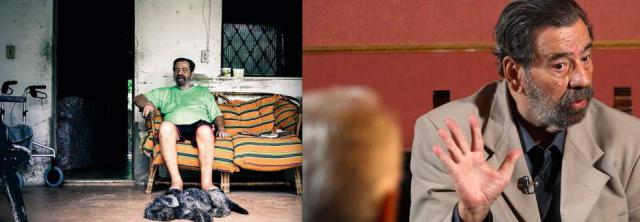At approximately four o’clock this past Thursday afternoon, Paulo Malhaes, a retired officer who served in the ‘70s during the years of Brazil’s military dictatorship, was murdered at his small farm outside of Rio de Janeiro.
Malhaes had become infamous in recent weeks, as I wrote in this space recently, for his lurid testimony before the Brazilian Truth Commission, where he described in graphic detail how the bodies of opponents of the repressive regime had been disappeared after being killed under torture.
According to news reports, Malhaes, his wife and a house mate, in some reports described as a valet, had arrived at the farm around two p.m. and were confronted by three intruders already in their home. The wife, Cristina Malhaes, and the house mate, later identified by police only as Rui, were restrained and led off into one room, while the former lieutenant colonel was taken to another.
Cristina and Rui were later released unharmed as the assailants departed the scene by car. Neither of the survivors reported having heard a sound to suggest the Malhaes had been worked over or “tortured.” But when police examined Malhaes’ body Friday morning they found marks on his face and neck, and have tentatively concluded that he died from asphyxiation. The only items the murderers removed from the premises were a computer, a printer, and several weapons that had belonged to the victim.
The announcement of Paulo Malhaes’ murder, reported in front pages all over Brazil, has sent shock waves through the country, including among surviving junta participants. The big question being debated is which side did him in.
 Admitted Brazil junta torturer Lt. Col. Paulo Malhaes resting at the home (left) where he was slain after testifying before a national Truth Commission (right) investigating the 1970s tortures and disappearances that took place under the US-backed junta
Admitted Brazil junta torturer Lt. Col. Paulo Malhaes resting at the home (left) where he was slain after testifying before a national Truth Commission (right) investigating the 1970s tortures and disappearances that took place under the US-backed junta
It’s certainly conceivable that a victim of the dictatorship, or a relative of someone who was disappeared, might have orchestrated Malhaes’s death in an act of vengeance long delayed. But this hypothesis is being given little credence, as is an alternative theory that Malhaes’ demise occurred in the course of a simple robbery unrelated to his notoriety.
The head of the Sao Paulo Municipal Truth Commission, Gilberto Natalini, suggested uncontroversially that Malhaes’ assassination “demonstrates that this page of Brazilian history has not yet been completely turned.”
His counterpart on the Rio de Janeiro Truth Commission, Wadih Damous, offers a darker theory, saying, “In my opinion, the murder of colonel Paulo Malhaes was an act of witness elimination. He was an important agent of political repression during the dictatorship, and a repository of information on what actually took place behind the scenes in that era.”
“He still had a lot to say,” agreed the former Minister of Human Rights, Maria do Rosario, “and could have been seen as a threat. True, he had already told what happened, but he didn’t reveal who did it.”
One Brazilian senator, Randolfe Rodrigues, speculated on how far those still operating in the “shadow of the dictatorship” might be willing to go “to erase the past.” He warned that the members of the various truth commissions had better start looking to their own security.
Michael Uhl is the author of “Vietnam Awakening,” a war memoir, and co-author of “G.I. Guinea Pigs,” the first book-length treatment of agent orange health problems among Vietnam veterans. He has written often for such national publications as the Nation, Geo Magazine, Forbes, the Progressive, the Washington Post and the Boston Globe. He wrote this article for ThisCantBeHappening!
